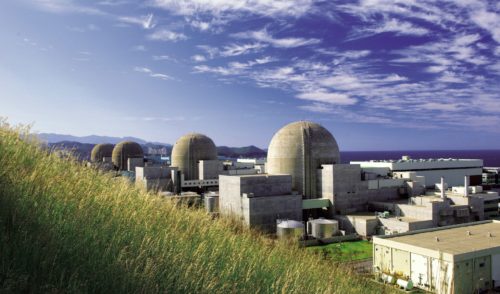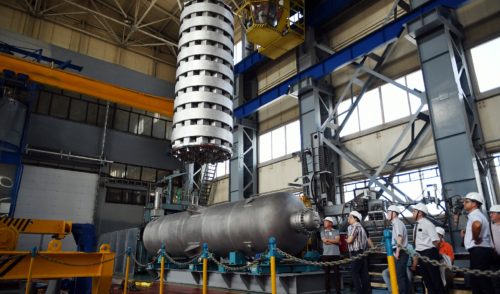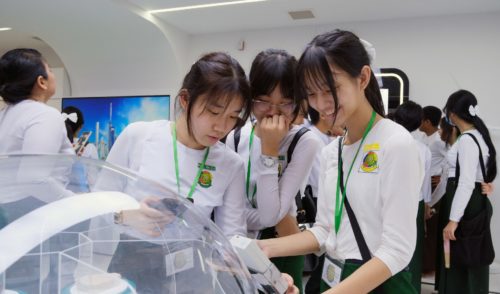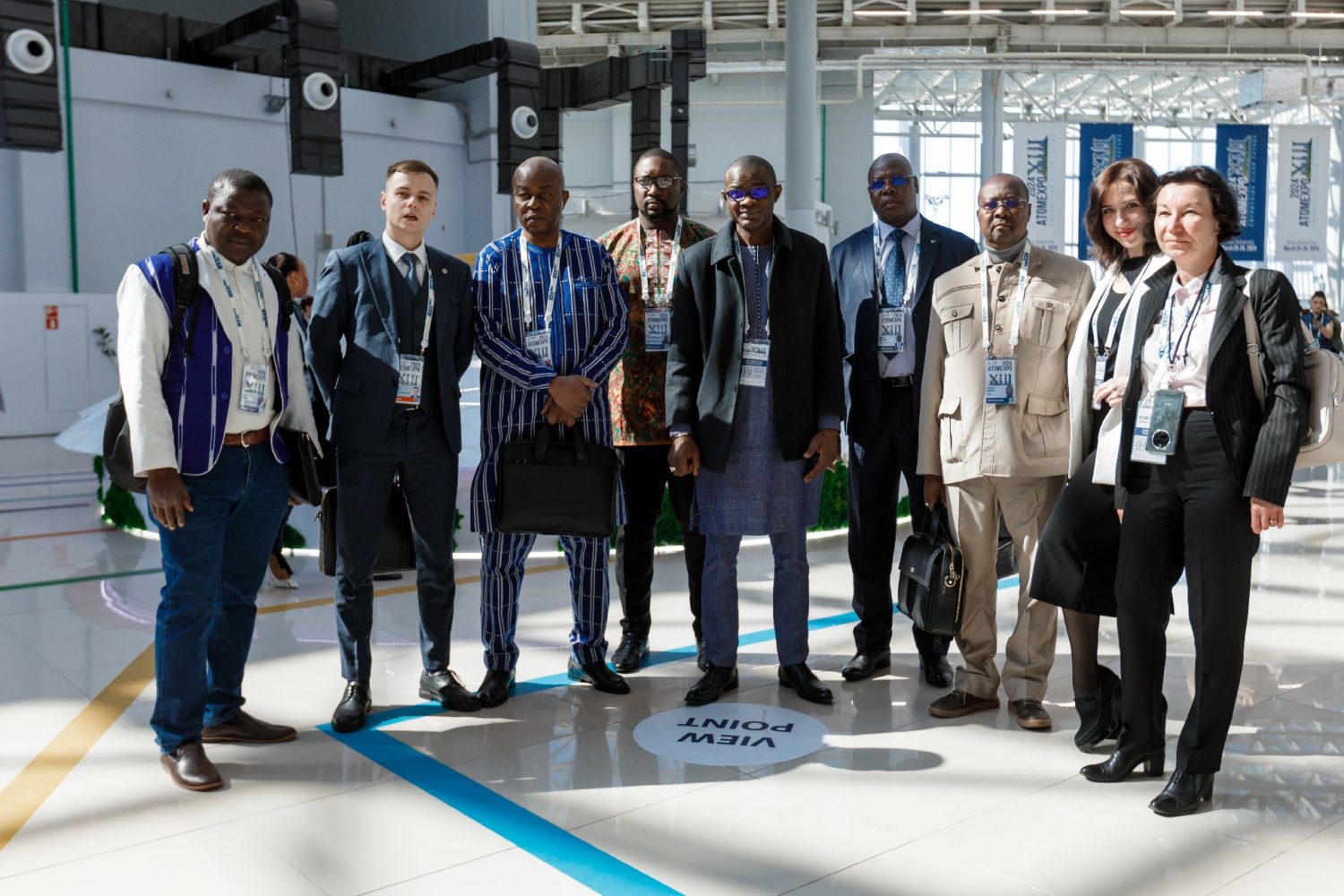
Becoming Nuclear Continent
back to contentsNuclear energy is emerging as a pivotal element in the energy strategy of Sub-Saharan Africa, where cooperation between the region and global nuclear entities is strengthening notably. This increasing collaboration is highlighted by the active participation of representatives from Rosatom and various African delegations in significant business events.
Opening the Atomexpo 2024 international forum, Rosatom Director General Alexey Likhachev highlighted the importance of collaboration with Africa: “We are noting the special, privileged participation of the African representatives in our forum. It is the continent that harbors huge potential for the development of nuclear technology.”
Speaking at the plenary session of the forum, Loyiso Tyabashe, Chief Executive Officer of the South African Nuclear Energy Corporation (NECSA), emphasized the significance of nuclear energy for sustainable development. He recalled that South Africa is in the process of extending the service life of the Koeberg Nuclear Power Station.
“Four Rosatom-designed power units are being built in Egypt today. Other African countries — Rwanda, Kenya, and Tanzania — are also interested in building nuclear stations. There are 640 million people with no access to electricity on the African continent. Let’s build a continent where everyone has such access. With the help of Rosatom and Chinese companies, we can revive the Timbuktu project and lay a foundation for the growth of the African continent for many years to come,” he believes.
Representatives of African countries took part in all key events of the Atomexpo forum. Amadou Keita, Minister of Mines of the Republic of Mali, said at the round table on the lithium market prospects that the full cycle production — from lithium mining to energy storage systems — was a promising way for the development of Africa’s lithium industry. Casian Dendere, CEO at South Africa’s COENG, pointed out that the use of lithium-ion energy storage systems would help tackle the energy shortage holding back Africa’s development. COENG plans to study the possibility of setting up local production of lithium-ion batteries in the near future.
Speaking at the panel discussion on the development of small-scale nuclear power generation, Loyiso Tyabashe recalled that Africa was the continent with the lowest greenhouse gas emissions but nevertheless suffered greatly from climate change caused by global warming. He noted the attractive prospects of building SMRs on the continent in general and South Africa in particular.
Another important topic discussed was education and professional training, including cooperation between universities, development of national educational infrastructures, and internships for students. Dr. Elisante Elisaimon Mshiu, Dean of the School of Mines and Geoscience at the University of Dar es Salaam (Tanzania), said that geology and mining education in Tanzania was undergoing major changes: “The transformation is aimed at gathering the industry at a round table and inviting them to join the academia in training. We are formalizing the process by developing guidelines that we will follow during the implementation.”
Africa Energy Indaba
In early March, Rosatom took part in the Africa Energy Indaba held in Cape Town, South Africa.
Africa Energy Indaba is a significant event dedicated to addressing the continent’s energy challenges and exploring sustainable solutions. It brings together policymakers, industry leaders, and experts from across the globe to discuss strategies for energy security in Africa.
In 2023, the South African government announced its new goal to restart a nuclear new build program to generate more electricity amid an energy crisis and regular power cuts in the country. Building on this momentum, within framework of the Africa Energy Indaba Forum, South Africa’s Energy Minister Gwede Mantashe advocated for the country’s right to develop its uranium industry for peaceful purposes, amidst the lifetime extension of the Koeberg nuclear power plant and pronouncements of adding 2,500 MW of nuclear capacity to the country’s energy mix. The Minister mentioned that Africa was blessed with natural resources, such as uranium, a mineral that can be used for various nuclear applications from generating clean baseload energy to using nuclear research reactors for medical purposes.
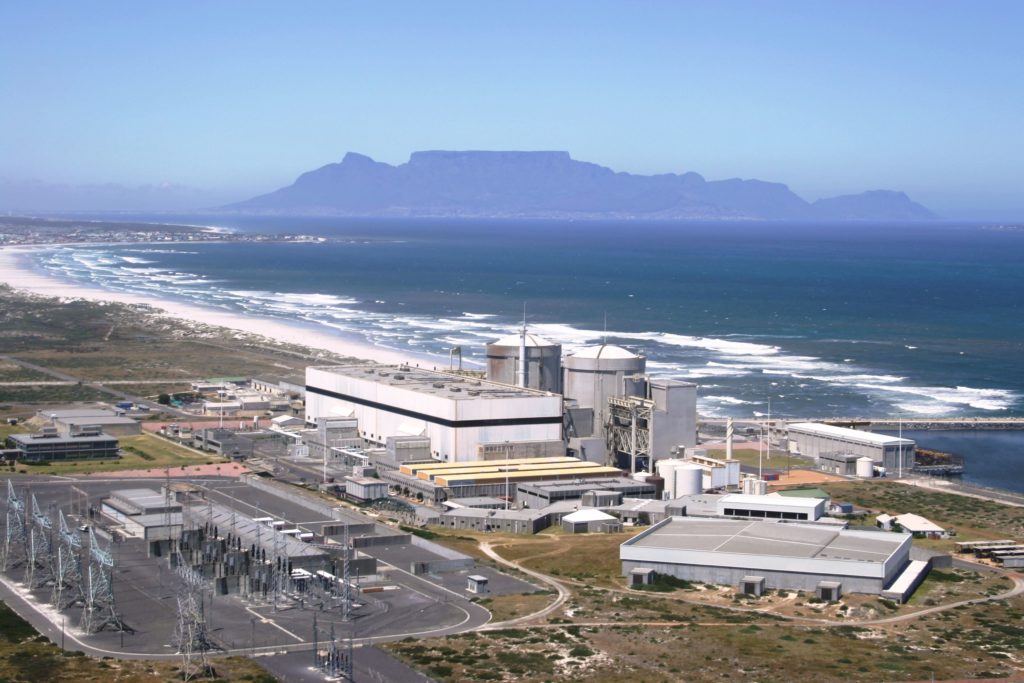
The forum became a venue for the representatives of African governments, regulatory bodies and potential suppliers to talk about the nuclear industry development on the continent. They discussed, among other topics, the role of state-run companies and regulators in nuclear construction programs, building local supply chains for the nuclear industry, and raising finance for nuclear power projects.
During the session titled ‘The Global Experience in the Deployment of Advanced Nuclear Power Plants’, representatives from KEPCO, KAERI, SNERDI, Rosatom, and Westinghouse discussed fundamental learnings and best practices of nuclear energy adaptation in countries such as Russia, China, USA, South Korea and, most importantly, South Africa.
Ryan Collyer, Rosatom’s CEO for Central and Southern Africa, stressed that Rosatom was a very strong proponent of a diversified energy mix. “We believe that the country should use all available assets and energy sources to provide the most efficient, stable and sustainable energy mix to grow the economy. While renewable energy and gas has an important role to play in the short term and medium term, we believe that the country should embark on its long-awaited nuclear program to ensure stable, affordable and environmentally friendly base load power for generations to come”, he said.
Rosatom also discussed the issue of BRICS cooperation on energy transition skills. Under South Africa’s BRICS Chairship in 2023, at the initiative of Rosatom, experts from leading BRICS companies and organizations developed the BRICS Energy Transition Skills Report 2023. The Rosatom Corporate Academy co-led the research. It describes the current state of energy skills in the BRICS countries and the challenges faced by the regions in ensuring the development of energy abilities. Rosatom is a member of the report’s Steering Committee under the BRICS Energy Research Cooperation Platform (ERCP).
The report identified key areas of cooperation to advance the energy transition in the BRICS countries. Among them are the sharing of energy expertise through research and joint educational programs, including online courses, and deepening of labor market integration through professional, academic and student mobility and recognition of qualifications.
“While maintaining succession in the group, together we are developing the initiative launched under the South African Chairship on training in the energy sector”, noted Olga Yudina, Russian Energy Agency’s Director of the Department of International Cooperation.
In September 2023, a high-level Eskom delegation took part in the Obninsk Nuclear Education Week and International Youth Nuclear Forum where Rosatom presented its innovative solutions for human resources management. Later that year, at COP28 in Dubai, UAE, Rosatom and Eskom signed a Cooperation Agreement on the development of the human-centric approach to the preparation and development of human resources. The Agreement lays a solid foundation for the companies’ cooperation on human potential and includes collaboration in such areas as joint education programmes for employees and other target audiences, programmes for empowering women and young professionals, short-term secondments of employees for education and training purposes, championship competitions for professional skills, and development of the research initiative Corporate Human-Centricity Index.
At Atomexpo 2024, Rosatom and Eskom signed an Action Plan for 2024–2026 to facilitate the implementation of the 2023 Agreement. The Action Plan covers, inter alia, partnership for organizing the first Obninsk Female Summer School, holding webinars on best HR practices exchange, enhanced cooperation on empowering women professionals, and establishing a talent pool of South African graduates from Rosatom’s flagship universities to connect them with employment opportunities in South Africa.
The BRICS Energy Transition Skills Report 2023 is a joint research paper prepared under South Africa’s BRICS Chairmanship at the initiative of Rosatom. The Report provides recommendations for countries and companies on the priority areas for future BRICS cooperation to develop energy transition skills. It enjoyed active participation of many BRICS institutions, including governmental organizations, academia, and think tanks and was supported by the International Labor Organization (ILO) and the International Renewable Energy Agency (IRENA). The Report’s findings were first presented at the BRICS Energy Ministerial Meeting on 18 August 2023 in Sandton, Republic of South Africa, and the official release of the Report took place at COP28 in Dubai on 6 December 2023.


